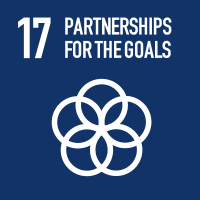Studying at the University of Verona
Here you can find information on the organisational aspects of the Programme, lecture timetables, learning activities and useful contact details for your time at the University, from enrolment to graduation.
Study Plan
This information is intended exclusively for students already enrolled in this course.If you are a new student interested in enrolling, you can find information about the course of study on the course page:
Laurea magistrale in Management e strategia d’impresa - Enrollment from 2025/2026The Study Plan includes all modules, teaching and learning activities that each student will need to undertake during their time at the University.
Please select your Study Plan based on your enrollment year.
1° Year
| Modules | Credits | TAF | SSD |
|---|
1 module between the following1 module between the following2° Year activated in the A.Y. 2023/2024
| Modules | Credits | TAF | SSD |
|---|
1 module between the following1 module between the following1 module between the following| Modules | Credits | TAF | SSD |
|---|
1 module between the following1 module between the following| Modules | Credits | TAF | SSD |
|---|
1 module between the following1 module between the following1 module between the following| Modules | Credits | TAF | SSD |
|---|
Legend | Type of training activity (TTA)
TAF (Type of Educational Activity) All courses and activities are classified into different types of educational activities, indicated by a letter.
Sustainable business models (SBMs) (2023/2024)
Teaching code
4S008098
Teacher
Coordinator
Credits
9
Language
Italian
Scientific Disciplinary Sector (SSD)
SECS-P/07 - BUSINESS ADMINISTRATION AND ACCOUNTING STUDIES
Period
Primo semestre (lauree magistrali) dal Oct 2, 2023 al Dec 22, 2023.
Courses Single
Authorized
Learning objectives
The course aims to give to the students the knowledge of corporate sustainability (economic, social and environmental) and social responsibility topics, of the different kind of business models for sustainability (such as circular economy models, benefit corporations among the others) and of the main international standards and management and reporting tools presently available, in a context of stakeholder relationships and engagement. In reply to sustainable development, organisations are asked to change their business models and to widen the boundaries of their measurement and reporting practices, in compliance to recent institutional and regulation changes (such as the ONU’s Sustainable Development Goals –SDGs - or the recent regulation on benefit corporations and on non-financial reporting). At the end of learning process, students will know and be able to implement the sustainability business models, and to apply the international standards and tools to plan, manage, control and report sustainability issues in different organisational contexts; they will be able to structure an hypothetical process of implementation of the different models in a firm and to assess the quality of management and reporting tools already adopted by the firm.
Prerequisites and basic notions
No specific knowledge is required as prerequisite to deal with the course topics.
Program
More in details the course program will include:
The studies on Corporate Social Responsibility (CSR)
The strategic approach to corporate social responsibility: business case and shared value
Sustainable development (SD) and corporate sustainability (CS).
The business model (BM) and the Business Model Canvas (BMC)
Sustainable business models (SBM): taxonomies, archetypes and canvas
Focus on some sustainable business models: Benefit Corporations (BC) and circular business models.
Sustainability reporting and the Italian regulation on non-financial disclosure (D. Lgs. 254/2016), the UE Corporate Sustainability Reporting Directive (CSRD)
The main standards of CSR and sustainability management and reporting:
- UN initiatives: Global Compact and Sustainable Development Goals (SDGs)
- ISO 26000
- SA 8000
- GRI (Global Reporting Initiative)
- ESRS (European sustainability reporting standards)
Analysis of some sustainability and integrated reports
Further materials (scientific articles, standards and ppt presentations) will be available on the e-learning platform.
The content of books, lessons and materials used during the lessons is adherent to the course program.
The program and the materials are the same for students attending o not attending the lessons
Book:
Balluchi F. e Furlotti K. (a cura di), La responsabilità sociale delle imprese. Un percorso verso lo sviluppo sostenibile (Seconda edizione), Giappichelli 2019, ISBN 978-88-921-2975-7, solo capitoli 1, 3, 7, 8, 9
Oppure:
Terza edizione (2022): solo capitoli 1,3,8,9,10
Bibliography
Didactic methods
The teaching methods will include frontal lessons on the theoretical basis of Corporate Social Responsibility, Sustainable Development and Corporate Sustainability, as well as on recent literature on Sustainable Business Models, dealing with sustainability implementation at strategic and operational business level.
Main international standards and guidelines on sustainability management and reporting will be examined.
Students could participate (though it is not mandatory) to group works deepening which will be assessed for the final exam.
Some entrepreneurs, consultants and managers will be invited to speak about their business experiences on sustainability and reporting.
The lessons are on-site following the published timetable. The lessons will be recorded and available on the course Moodle platform. Participative learning activities will be held on-site and cannot be recorded due to their nature.
Learning assessment procedures
The examination is written, and is composed by three open questions on the course program; during the course a group work could be prepared (but it is not compulsory), which would be assessed at the end of the course with a score (up to 2 points) on the final exam score.
The exam is the same for both students attending or not attending the course lessons.
The exam process would be subject to change in case the COVID-19 pandemic emergency will endure, following potential regulation from the Ministry of Education or from the University.
Evaluation criteria
Knowledge of the theories and tools (models and standards) studied in the course.
Ability to reflect on practical applications to the business world.
Criteria for the composition of the final grade
Sum of the points obtained in the written exam, plus point of the group works (if done).
Exam language
italiano




